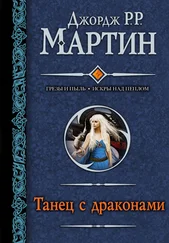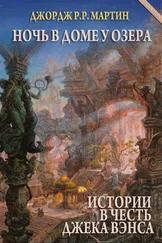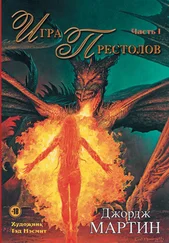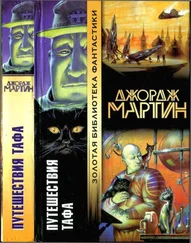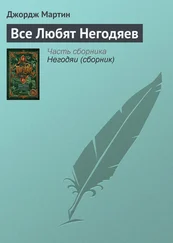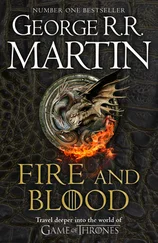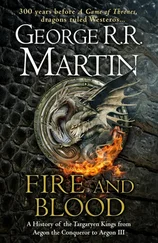
As Septon Eustace led the doomed men in prayer, beseeching the Mother to have mercy on their souls, rain began to fall. “It rained so hard, and Eustace droned on so long, that we began to fear the prisoners might drown before their heads could be cut off,” says Mushroom. At last the prayer concluded, and Lord Cregan Stark unsheathed Ice, the Valyrian greatsword that was the pride of his house, for the savage custom of the North decreed that the man who passed the sentence must also wield the sword, that their blood might be upon his hands alone.
Be he a high lord or common headsman, seldom had any man faced so many executions as Cregan Stark did that morning in the rain. Yet it came undone in a trice. The condemned had drawn lots to see who would be the first to die, and the choice had fallen on Ser Perkin the Flea. When Lord Cregan asked that cunning rogue if he had any final words, Ser Perkin declared that he wished to take the black. A southron lord might or might not have honored his request, but the Starks are of the North, where the needs of the Night’s Watch are held in high regard.
And when Lord Cregan bade his men haul the Flea onto his feet, the other prisoners saw the road to deliverance, and echoed his request. “All of them began to shout at once,” Mushroom says, “like a chorus of drunks bellowing out the words of a song they half remember.” Gutter knights and men-at-arms, litter-bearers, serving men, heralds, the keeper of the wine cellars, three White Swords of the Kingsguard, every man of them suddenly evinced a deep desire to defend the Wall. Even Grand Maester Orwyle joined the desperate chorus. He too was spared, for the Night’s Watch needs men of the quill as well as men of the sword.
Only two men died that day. One was Ser Gyles Belgrave, of the Kingsguard. Unlike his Sworn Brothers, Ser Gyles refused the chance to exchange his white cloak for black. “You were not wrong, Lord Stark,” he said when his turn came. “A knight of the Kingsguard should not outlive his king.” Lord Cregan took his head off with a single swift swing of Ice.
Next (and last) to die was Lord Larys Strong. When asked if he wished to take the black, he said, “No, my lord. I’ll be going to a warmer hell, if it please you…but I do have one last request. When I am dead, hack off my clubfoot with that great sword of yours. I have dragged it with me all through life, let me be free of it in death at least.” This boon Lord Stark granted him.
Thus perished the last Strong, and a proud and ancient house came to its end. Lord Larys’s remains were given over to the silent sisters; years later, his bones would find their final resting place at Harrenhal…save for his clubfoot. Lord Stark decreed that it should be buried separately in a pauper’s field, but before that could be done, it disappeared. Mushroom tells us it was stolen and sold to some sorcerer, who used it in the casting of his spells. (The selfsame tale is told of the foot torn off Prince Joffrey’s leg in Flea Bottom, which makes the veracity of both suspect, unless we are meant to believe that all feet are possessed of malign powers.)
The heads of Lord Larys Strong and Ser Gyles Belgrave were mounted on either side of the Red Keep’s gates. The other condemned were returned to their cells to languish until arrangements could be made to send them to the Wall. The final line in the history of the woeful reign of King Aegon II Targaryen had been written.

Cregan Stark’s brief service as the Hand of the Uncrowned King ended the next day, when he returned his chain of office to Prince Aegon. He might easily have remained King’s Hand for years, or even claimed the regency until young Aegon came of age, but the south held no interest for him. “The snows are falling in the North,” he announced, “and my place is at Winterfell.”
Under the Regents—The Hooded Hand

Cregan Stark had stepped down as Hand of the King and announced his intention to return to Winterfell, but before he could take his leave of the south he faced a thorny problem.
Lord Stark had marched south with a great host, made up in large part of men unwanted and unneeded in the North, whose return would bring great hardship and mayhaps even death for the loved ones they had left behind. Legend (and Mushroom) tells us that it was Lady Alysanne who suggested an answer. The lands along the Trident were full of widows, she reminded Lord Stark; women, many burdened with young children, who had sent their husbands off to fight with one lord or another, only for them to fall in battle. With winter at hand, strong backs and willing hands would be welcome in many a hearth and home.
In the end, more than a thousand northmen accompanied Black Aly and her nephew Lord Benjicot when they returned to the riverlands after the royal wedding. “A wolf for every widow,” Mushroom japed, “he will warm her bed in winter, and gnaw her bones come spring.” Yet hundreds of marriages were made at the so-called Widow Fairs held at Raventree, Riverrun, Stoney Sept, the Twins, and Fairmarket. Those northmen who did not wish to marry instead swore their swords to lords both great and small as guards and men-at-arms. A few, sad to say, did turn to outlawry and met evil ends, but for the most part, Lady Alysanne’s matchmaking was a great success. The resettled northmen not only strengthened the riverlords who welcomed them, particularly House Tully and House Blackwood, but also helped revive and spread the worship of the old gods south of the Neck.
Other northerners chose to seek new lives and fortunes across the narrow sea. A few days after Lord Stark stepped down as the King’s Hand, Ser Marston Waters returned alone from Lys, whence he had been sent to hire sellswords. He gladly accepted a pardon for his past crimes, and reported that the Triarchy had collapsed. On the point of war, the Three Daughters were hiring free companies as fast as they could form, at wages he could not hope to match. Many of Lord Cregan’s northmen saw this as an opportunity. Why return to a land gripped by winter to freeze or starve when there was gold to be had across the narrow sea? Not one but two free companies were birthed as a result. The Wolf Pack, commanded by Hallis Hornwood, called Mad Hal, and Timotty Snow, the Bastard of Flint’s Finger, was made up entirely of northmen, whilst the Stormbreakers, financed and led by Ser Oscar Tully, included men from every part of Westeros.
Even as these adventurers prepared to take their leave of King’s Landing, others were arriving from every point of the compass for Prince Aegon’s coronation and the royal wedding. From the west came Lady Johanna Lannister and her father, Roland Westerling, Lord of the Crag; from the south, twoscore Hightowers from Oldtown, led by Lord Lyonel and the redoubtable Lady Samantha, his father’s widow. Though forbidden to wed, their passion for one another had become common knowledge by this time, and so great a scandal that the High Septon refused to travel with them, arriving three days later in the company of the Lords Redwyne, Costayne, and Beesbury.
Lady Elenda, the widow of Lord Borros, remained at Storm’s End with her infant son, but sent her daughters Cassandra, Ellyn, and Floris to represent House Baratheon. (Maris, the fourth daughter, had joined the silent sisters, Septon Eustace informs us. In Mushroom’s account, this was done after her lady mother had her tongue removed, but that grisly detail can be safely discounted. The persistent belief that the silent sisters are tongueless is no more than a myth; it is piety that keeps the sisters silent, not red-hot pincers.) Lady Baratheon’s father, Royce Caron, Lord of Nightsong and Marshal of the Marches, escorted the girls to the city, and would remain with them as their guardian.
Читать дальше
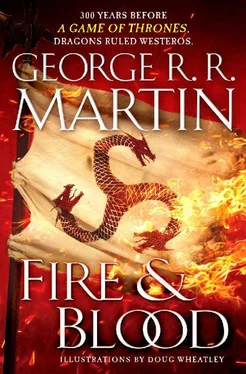



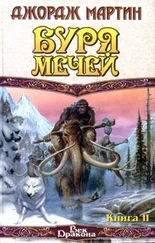
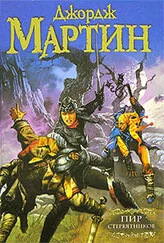

![Джордж Мартин - Сыны Дракона [лп]](/books/33039/dzhordzh-martin-syny-drakona-lp-thumb.webp)
